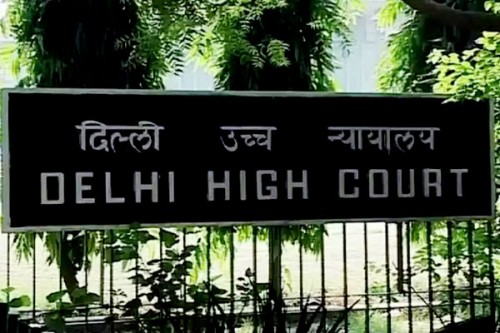Delhi HC asks DU to notify attendance of each student on notice board

New Delhi, Feb 12 (IANS) The Delhi High Court has ordered the Delhi University (DU) to notify the attendance position of each student for every month on its notice board, clearly indicating the lectures/practicals held subject-wise and the numbers attended by each student.
It stressed that the varsity should send monthly attendance updates via email along with SMS and WhatsApp to the respective students, apart from maintaining a record of such notifications.
A bench of Justice Dinesh Kumar Sharma said that it is making the observation relating to monthly attendance updates on the premise that at the time of admission, the students must have furnished their mobile numbers and email IDs and in case of any change or not being provided at the time of admission, necessary steps may be taken to update the data of the students within a month.
It suggested that the Dean of the law faculty, in consultation with the Bar Council of India (BCI), may evolve a mechanism where the students within a time frame may make a representation regarding short attendance, and the authorities may take appropriate decision if such representations are found to be genuine.
“The University of Delhi and the Bar Council of India may also evolve a mechanism to enable the students to attend classes online with the appropriate safeguards and conditions. The court is conscious of the fact that in professional courses, physical attendance carries distinct values, however, the continuous development of the technology and Artificial Intelligence presents an opportunity to the experts to evolve effective remote learning mechanisms,” added the Justice Sharma-led Bench.
The above observations were made by the Delhi High Court as it dealt with a batch of petitions filed by students studying in different semesters at the DU’s law faculty after they were not issued the admit cards for semester exams due to a shortage of attendance.
The writ petitioners sought directions to issue admit cards and allow them to appear in the semester examinations, which were scheduled to be held from January 7, 2025. The grounds of challenge in the petitions included late allocation of the section, mismanagement in administration, shortage of teaching staff, inability to attend classes due to good internship opportunity, not being named in the first detention list and shortage of attendance was not duly notified.
In its written submissions, Delhi University stated that the petitioner did not succeed in getting the minimum 70 per cent attendance in aggregate and there is no relaxation provided under the Bar Council of India (BCI) Rules. The varsity added that the attendance position of the students is displayed on the notice board every month during the academic session and any delay in holding the examinations has a cascading effect on the subsequent semesters.
The Justice Sharma-led Bench, in its judgement, stressed that the powers under Article 226 cannot be used as “a tool for granting relief in situations where there has been a manifest disregard of discipline by the students themselves” and to permit such an invocation would not only undermine the integrity of the professional course but also prejudice those students who diligently observe their academic responsibilities.
Dismissing the batch of petitions, it said that interim orders passed in connected writ petitions were purely provisional in nature without going into the merits of the case.

|

|

